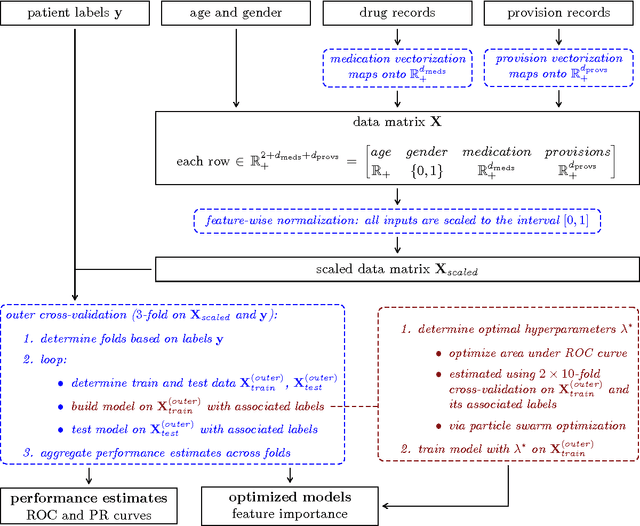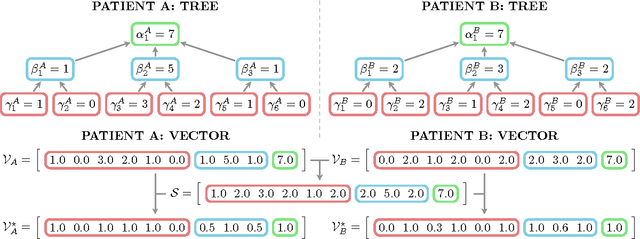Chantal Mathieu
Building Classifiers to Predict the Start of Glucose-Lowering Pharmacotherapy Using Belgian Health Expenditure Data
Apr 28, 2015



Abstract:Early diagnosis is important for type 2 diabetes (T2D) to improve patient prognosis, prevent complications and reduce long-term treatment costs. We present a novel risk profiling approach based exclusively on health expenditure data that is available to Belgian mutual health insurers. We used expenditure data related to drug purchases and medical provisions to construct models that predict whether a patient will start glucose-lowering pharmacotherapy in the coming years, based on that patient's recent medical expenditure history. The design and implementation of the modeling strategy are discussed in detail and several learning methods are benchmarked for our application. Our best performing model obtains between 74.9% and 76.8% area under the ROC curve, which is comparable to state-of-the-art risk prediction approaches for T2D based on questionnaires. In contrast to other methods, our approach can be implemented on a population-wide scale at virtually no extra operational cost. Possibly, our approach can be further improved by additional information about some risk factors of T2D that is unavailable in health expenditure data.
 Add to Chrome
Add to Chrome Add to Firefox
Add to Firefox Add to Edge
Add to Edge